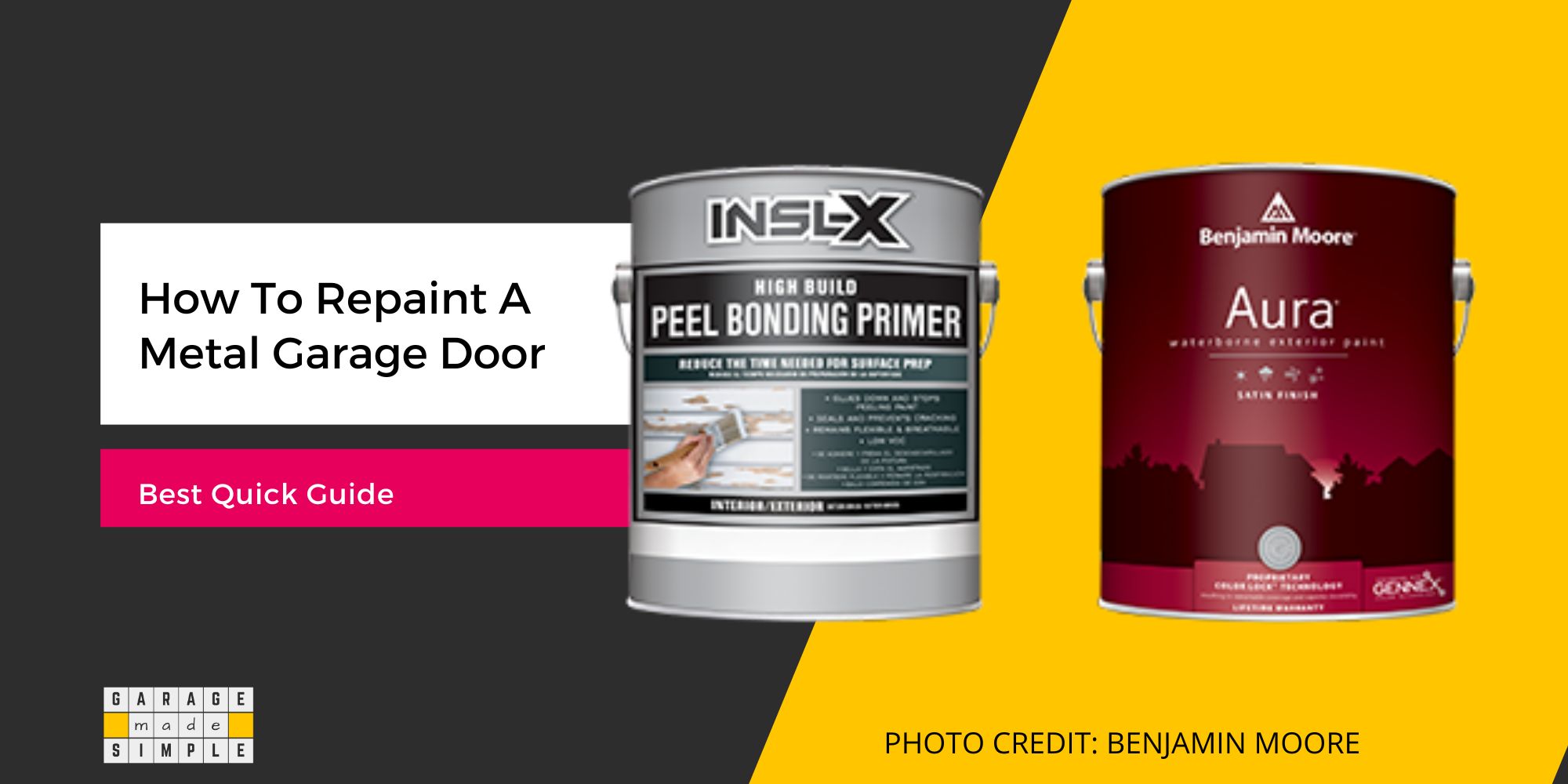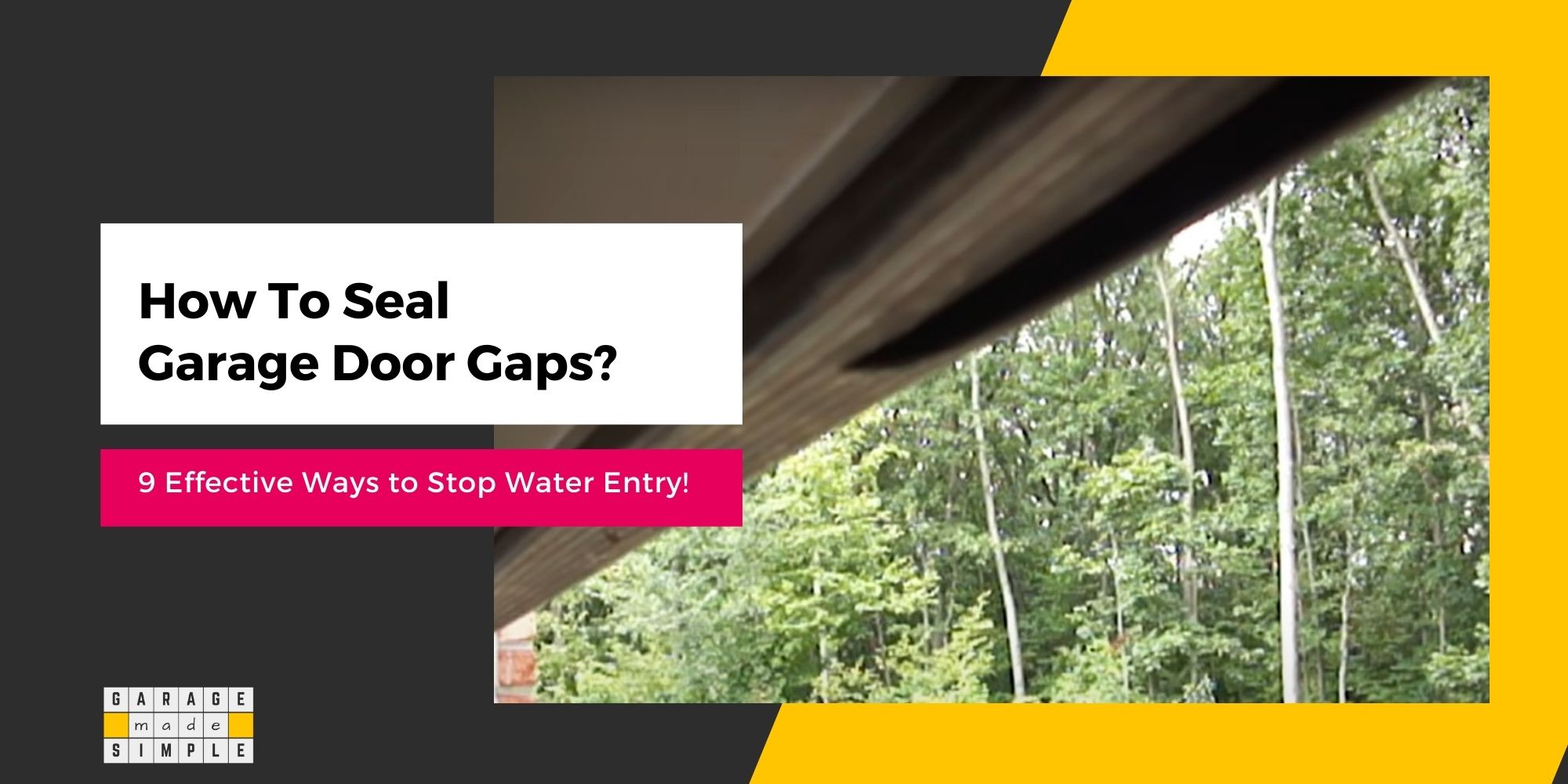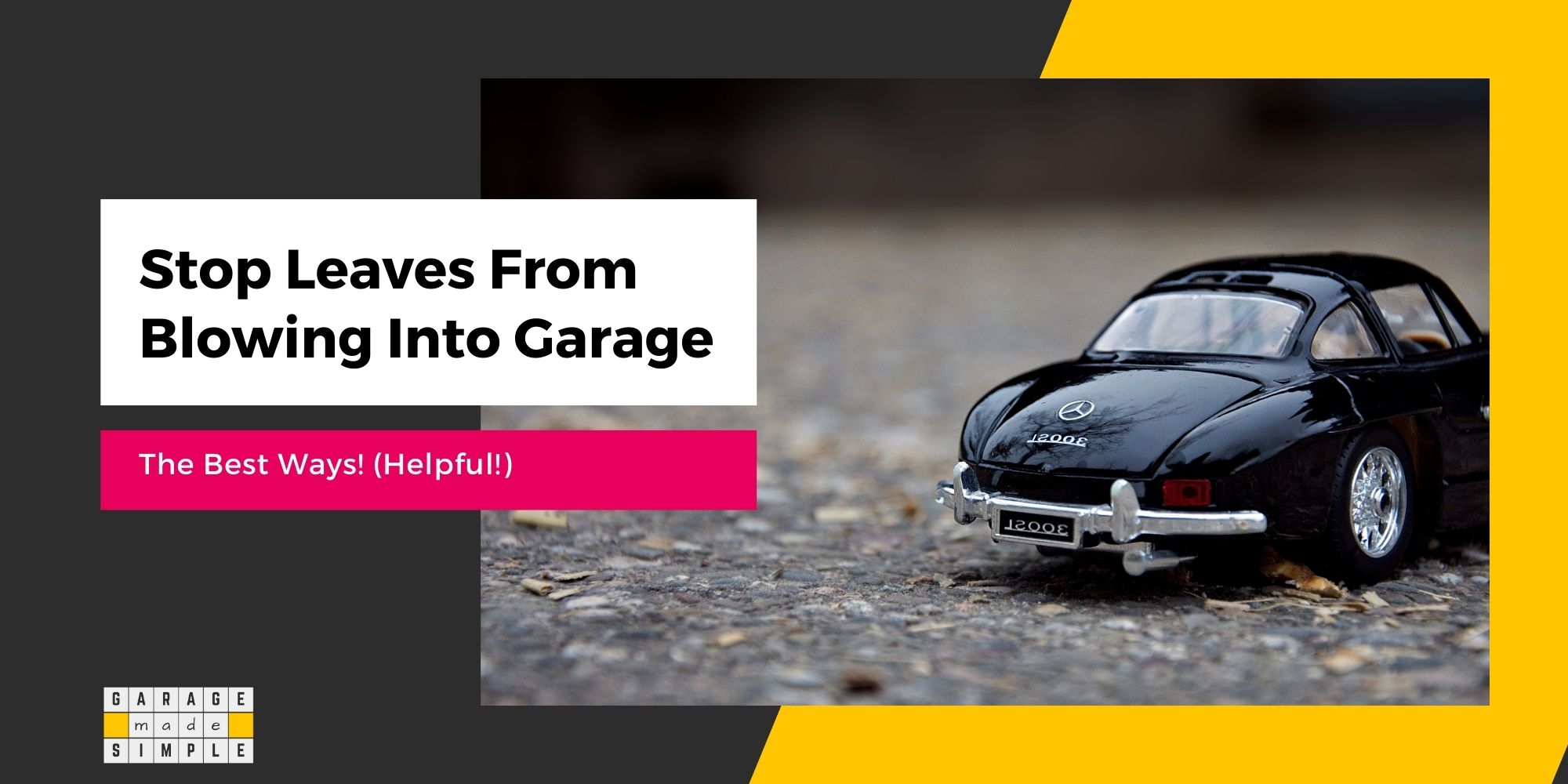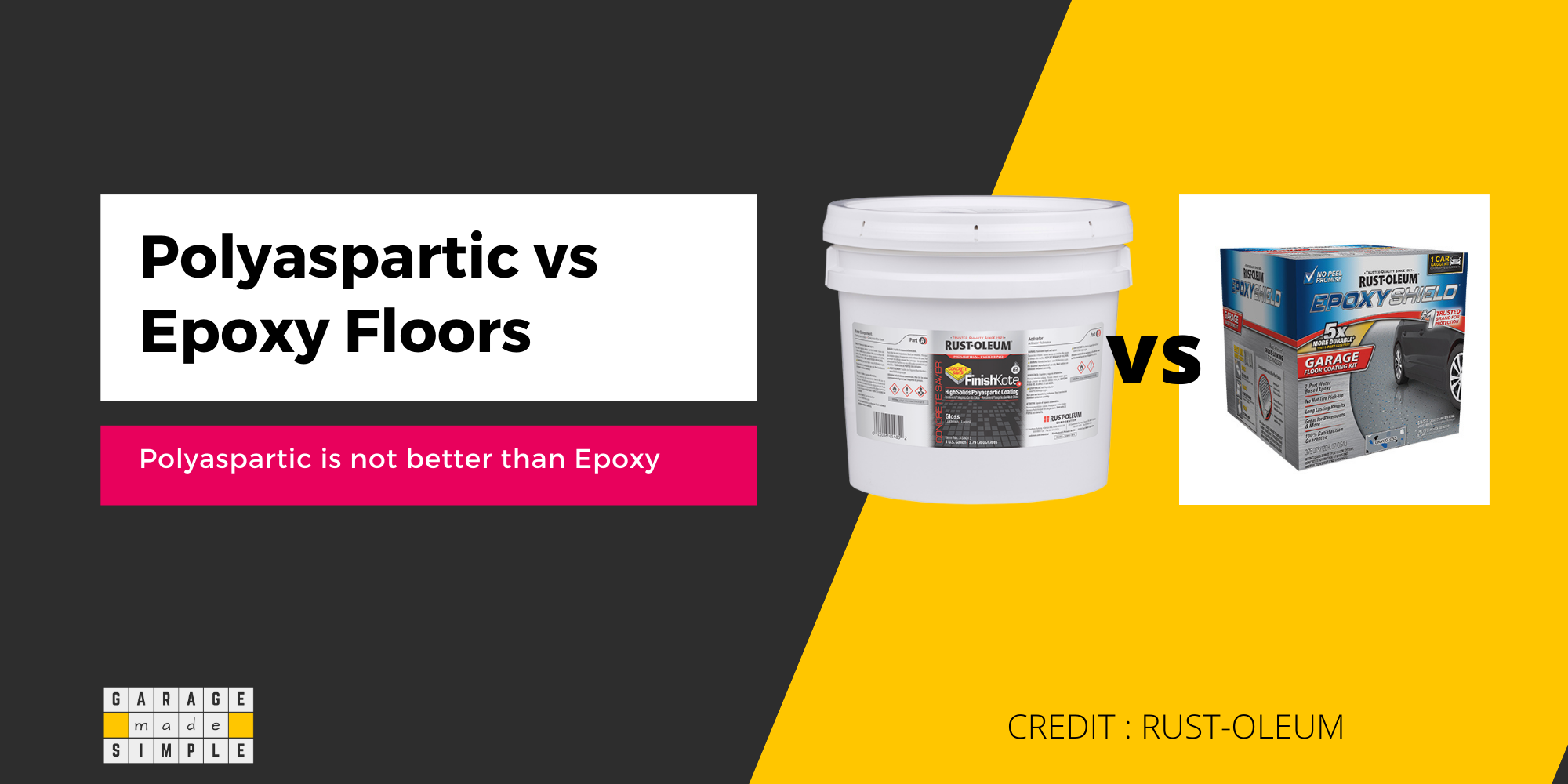Pressure Wash an Epoxy Garage Floor? Best Guide for 2024!
garagemadesimple.com is a participant in the Amazon Services LLC Associates Program, an affiliate advertising program designed to provide a means for sites to earn advertising fees by advertising and linking to Amazon.com . The website is also an affiliate of a few other brands.
Can You Pressure Wash an Epoxy Garage Floor?
Are you unhappy with your garage floor? Does it look really dirty and needs a total cleaning up? But you dread the thought of picking up a bucket of soap water and a mop. Cleaning the garage floor can be backbreaking work. So, can you pressure wash an epoxy garage floor?
You can pressure wash an epoxy garage floor provided you use a low pressure and direct the water at an angle of 25°. A direct blast at 0° from a high pressure water jet can damage not only your epoxy floor but even the concrete underneath it.
It is quite likely that you already have a pressure washer, at home, that you use to clean your car, the driveway or the patio. So, obviously it is tempting to use the same pressure washer to pressure wash your epoxy garage floor.
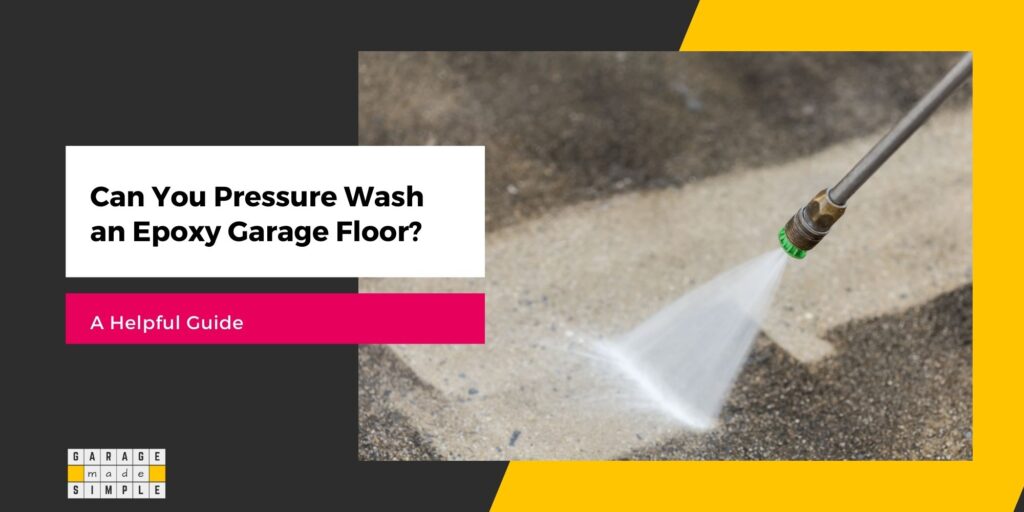
However, before you begin to pressure wash your epoxy garage floor, read this very helpful guide. You want to make sure that you pressure wash your epoxy garage floor the right way, use the correct pressure and the appropriate attachments.
What Is the Difference Between a Power Washer and a Pressure Washer?
The terms power washer and pressure washer, can at times be confusing. For a long time I used to think that they mean the same thing. Only recently, I discovered that there is a subtle difference between a power washer and a pressure washer.
The main difference is that a pressure washer works with cold water while a power washer works with hot water.
As a result power washers are heavier and more expensive. It is possibly an overkill for a home!
Many professional cleaning companies prefer to use a power washer, because hot water does a better job of breaking down grease and oil marks on the floor.
A pressure washer is quite adequate for the once in a while cleaning of driveways, patios and pool decks. If you really need to use the power washer you should just rent it for a day.
How to Choose the Correct Pressure Washer?
Broadly speaking pressure washers are either electric or gas powered. There are several brands in the market and each brand has a range of models. The models vary from one another based on the pressure and flow rating.
If you are looking to buy a new pressure washer you must consider the following:
- The energy source: Electric or Gas powered
- The pressure rating in psi (pounds per square inch)
- The maximum water flow in GPM (gallons per minute)
Gas Powered Pressure Washers
Gas powered pressure washers are larger and more powerful. They can generate higher pressures as well as higher water flow. A typical gas powered pressure washer may be rated at 3000 psi and 3 GPM.
Gas powered pressure washers are powerful but also expensive and noisy. It is better to rent them, when required, rather than buy them. However, you may want to buy one, if you have a large pool deck or a very long concrete driveway.
Electric Powered Pressure Washers
Electric pressure washers tend to have a lower psi rating compared to gas powered pressure washers. The psi rating is typically in the 1500 – 2500 psi range. This is quite adequate for most indoor or partially covered floors.
An electric pressure washer with a psi rating of around 2000 psi can be used to pressure wash:
- Epoxy Garage Floors
- Concrete Driveways
- Porches & Patios
- Wood, concrete or paver Pool Decks
- Sidings & Fences

How Do You Pressure Wash an Epoxy Garage Floor Safely?
All pressure washers come with a psi rating. This is the maximum water pressure that the pressure washer will deliver. This is the pressure at the wand nozzle tip.
The water pressure that is created on the deck surface drops & depends on:
- The distance between the nozzle and deck
- The spray spread
- The spray angle
If you do not want the water pressure to abrade the epoxy surface then you need to control the spray distance, spread & angle. Moreover, you have to keep the spray moving across the deck in slow, but uniform circular motion. Avoid spraying the same area continuously for too long.
I must admit that this is easier said than done. The spray gun is well, ultimately a kind of a gun. And don’t we love playing with guns? Not surprisingly, we are more likely to overdo the pressure washing than underdo it!
The best solution to get controlled and effective cleaning of the garage floor is to use a rotary surface cleaner attachment at the end of the wand. The attachment has:
- Two rotating flat jet nozzles
- Splash guard
- Adjustable height
The attachment ensures a constant spray distance, spread & angle.
You should check out Karcher Universal 11″ Pressure Washer Surface Cleaner Attachment for Electric Power Pressure Washers.

Its key features are:
- Universal Compatibility: Compatible with Karcher & most non-Karcher pressure washers
- Efficient Cleaning: Two high RPM spinning nozzles instead of one
- Multi-Surface Cleaner: Works on concrete, driveways, patios, decks, sidewalks and more
- Splash-Free Skirt: A shroud and splash-free skirt minimize overspray
How to Pressure Wash an Epoxy Garage Floor?
You need to pressure wash your epoxy garage floor in a methodical, step-by-step process. This will make the task of cleaning your garage floor more efficient & effective.
STEP 1
Clear up the garage floor, as much as possible, by taking out all the big, yet movable items and keep them outside. This should of course include your cars, gardening equipment such as lawnmower, which occupy garage floor space.
Pick up light items such as tool boxes, storage bins and paint cans that may be lying on the floor and keep them on shelves or workbenches.
STEP 2
It is better to remove the dust & dirt on the floor before you power wash your epoxy garage floor. Use a broom or a soft bristle plastic brush to sweep the garage floor. Sweeping also enables you to pick up small items such as nails or screws lying around on the floor.
Using a standard vacuum cleaner or a shop vac is an option that can save you a lot of work & time.
STEP 3
Now that the garage floor is somewhat clean you will be able to spot the stains. The most obvious ones are those from grease or motor oil from the cars. Use a degreaser on the stains and let it soak for 15 to 20 minutes.
Use a brush to scrub the stains till they are gone. Do not wait too long, else the degreaser will dry out along with the muck.
STEP 4
Use plastic covers or tarps to cover up furniture, shelves, workbenches, etc. that could not be moved out. You should also cover electrical outlets, extension cords that are at a low level. Use plastic and masking tape for this.
Are the walls of your garage sheathed in drywall? Drywall is hygroscopic. It will soak up the water from the pressure wash cleaning. If the lower section of your walls is not protected you will need to cover a band, 3 feet high, with plastic film.
STEP 5
Now it is time to get your pressure washer out. Connect it to an electrical outlet and the garden hose. The desired specification for the pressure washer is 1700 – 2000 psi and 1.0 – 1.5 GPM.
Attach the rotary surface cleaner attachment to the pressure washer. This attachment ensures that water is sprayed at an angle to the epoxy floor. The rotary cleaner attachment also ensures that the water jet does not stay at the same point for an extended period of time.
STEP 6
Prepare the cleaning solution in a bucket of water in the ratio recommended by the manufacturer. Use a stick or your hand to mix up the solution. Pour the solution into the reservoir of the power washer.
STEP 7
Now you are all set to power wash your epoxy garage floor. Start the power washing from the end which is furthest from the garage door. Garage floors slope towards the garage door or a drain, as per the International Residential Code (IRC).
As you power wash the epoxy garage floor, the dirty water will naturally flow towards the drain or the garage door.
In case you are not using the rotary surface cleaner attachment, then make sure that the wand nozzle is kept at least 1 foot above the floor. Use a nozzle which has an angle of 25°.
Work your way from the back end of the garage towards the garage door, moving the wand from left to right in a circular fashion.
STEP 8
If it is a hot day, you can let the garage floor dry out naturally. However, in case the humidity is high, you can also use a leaf blower or a dehumidifier to hasten the drying out process.
At the end of these 8 steps your epoxy garage floor should be looking as good as new!
FAQ
Can I Use Bleach on an Epoxy Garage Floor?
You should not use bleach, ammonia or any other strong chemicals on your epoxy garage floor. They will discolor the floor. Use soft degreasers or stain removers, especially formulated for epoxy floors, instead.
Can You Steam Clean an Epoxy Garage Floor?
Yes, you can. In fact it is a good way to clean the floor, retain the shine and keep your epoxy garage floor looking as good as new for a long time.
How Can I Remove Scratch Marks from an Epoxy Garage Floor?
You can remove scratch marks on an epoxy garage floor by applying furniture polish on it and rubbing it with a cloth in a circular motion.
How Often Should You Pressure Wash Your Epoxy Garage Floor?
Unless your epoxy garage floor is extremely grimy & dirty you do not need to pressure wash. Mopping with dish washing soap solution will make it pretty clean.
Maybe once in a year you could pressure wash your epoxy garage floor.
Do I Need to Wax Epoxy Floors?
Epoxy floors do not need to be waxed as they have a natural glossy look. If you feel that the floor has lost its shine, it is better to apply a glossy epoxy clear top coat.
Thank you very much for reading the post. I do hope you found it informative and useful.


